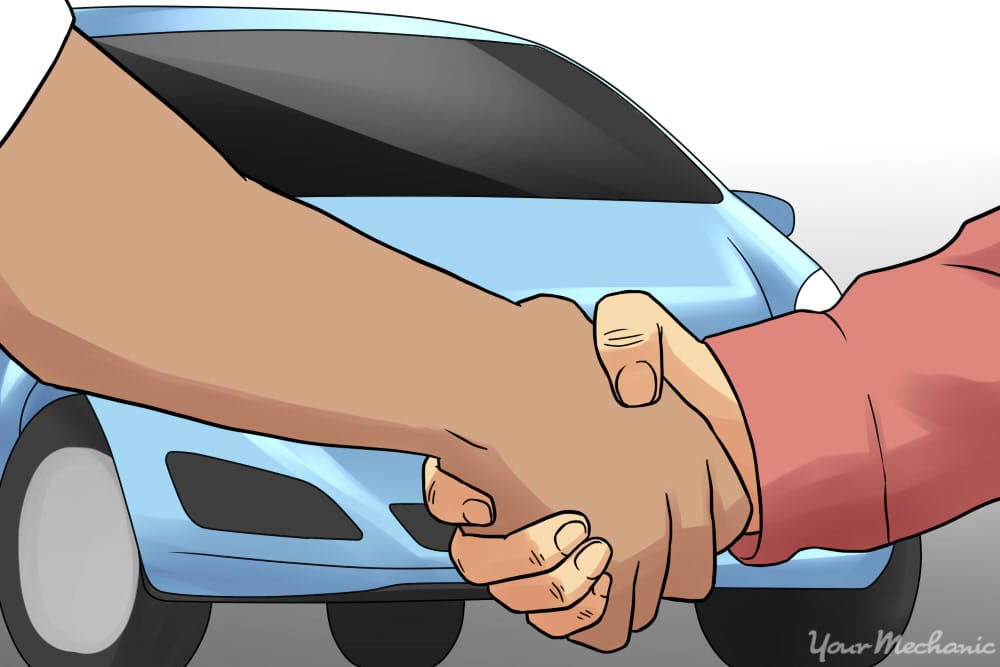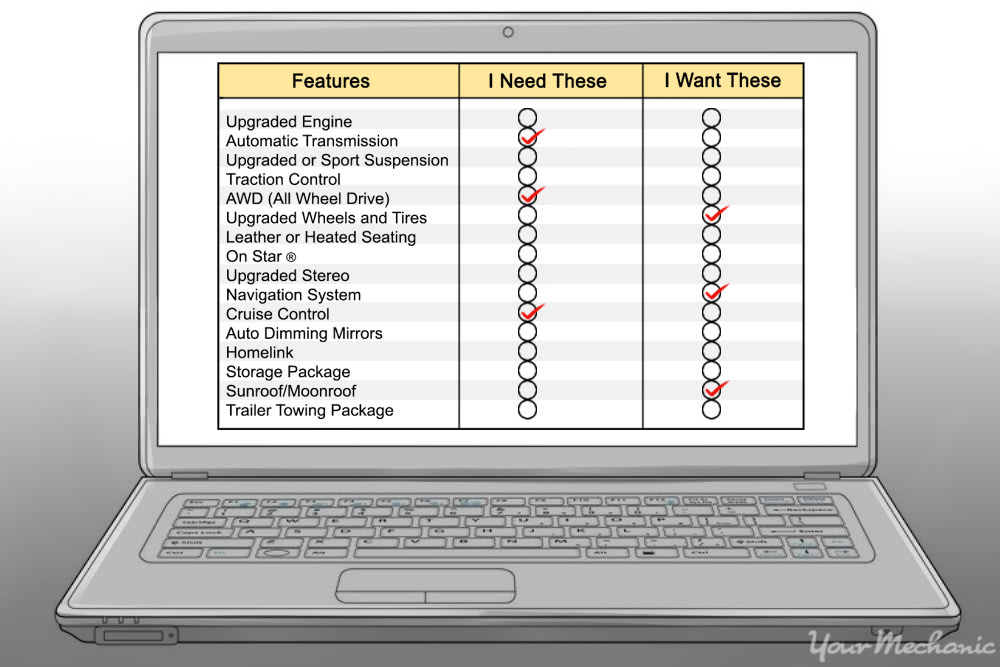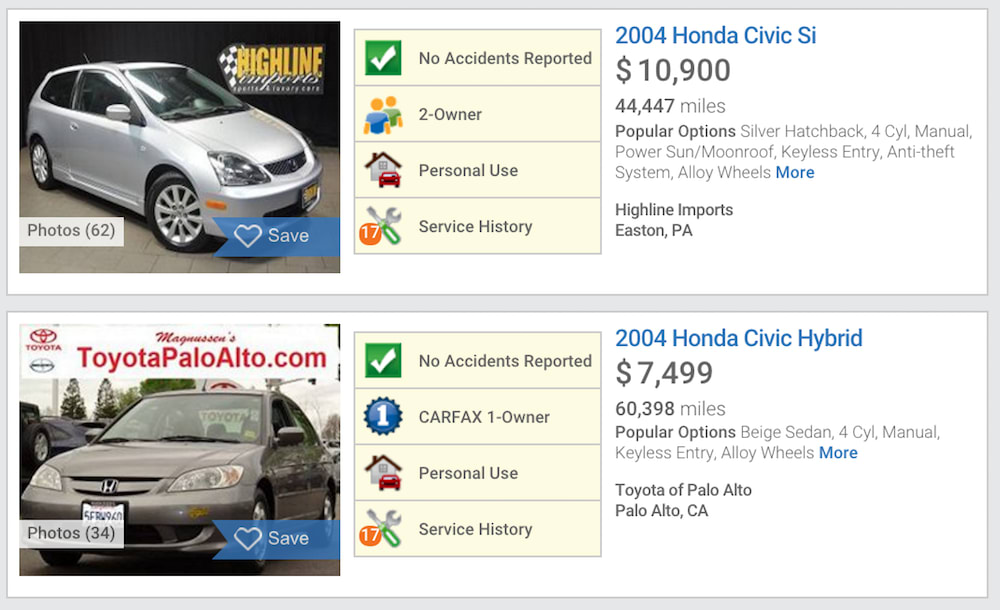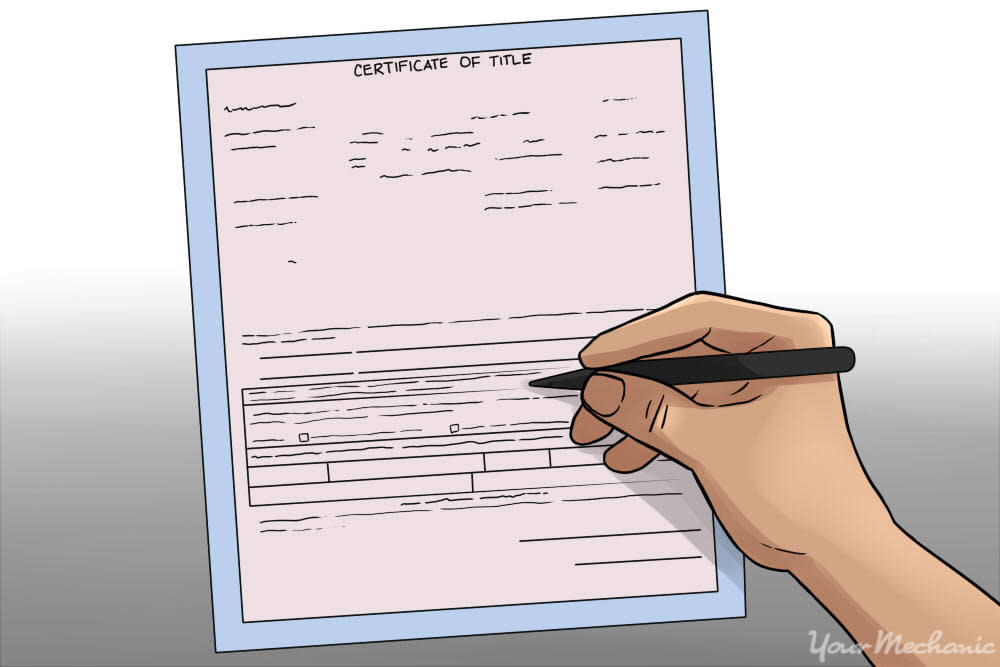

Part 1 of 6: What is a “private party?”
If you’re in the market for a used car, you can chose to go to a dealership or buy a car from a private party. Buying from a private party is not an uncommon occurrence with used cars, but many people are put off by the prospect of giving a large sum of money to someone who is selling a car personally.
In the context of purchasing a vehicle, a “private party” simply means an individual, as opposed to a business. Buying a car from an individual means you are not automatically protected by manufacturer or dealership warranties and other paperwork, and you might be buying from total strangers. This isn’t necessarily a bad thing, but buying from a private party will require you to do your due diligence with a little extra research and inspection.
Dealerships may offer more benefits along with the purchase, but with private party sales there is the possibility of saving a ton of money compared to a dealership. First, let’s take a look at the possible advantages and disadvantages involved with each option.
Part 2 of 6: Pros of buying a car from a dealership
Consumer protection: Since dealerships are businesses that revolve around the sale of new and used cars, consumers are much better protected from scams and fraud. It’s also easy to establish who is at fault if the car turns out to be stolen or otherwise not as represented.
Variety: Dealerships offer consumers a number of used cars to choose from, often with more than one variation of each model. This makes it possible to more accurately compare possible choices.
Financing: Dealerships almost always offer some kind of financing for buying a used car, so there is less paperwork for the customer compared with getting a loan for a used car from the bank.
Time: There is rarely a need to schedule time to meet with a salesman at a dealership, whereas meeting for private sale has to be planned ahead of time. If one car stands out, but the customer still wants time to think, the dealership is usually much more accommodating.
Part 3 of 6: Pros of buying a car from a private party
Price: While dealerships pay below the regular price for cars they buy used, the cost of operating a dealership drives up the price of a used car up above what private sellers will let go of theirs for. Most everyone who talks about getting a car for a great deal is talking about a car bought in a private sale.
Convenience: If the customer is close to any large or particularly good dealerships, a private sale may offer a more convenient alternative. A single small town can have dozens of used cars for sale at any given time, so on one weekend day, a number of cars can be assessed.
Part 4 of 6: What to consider when buying a used car
Step 1: Know what car you want. This step is the most important. Make a list of cars that you fulfill all your needs. For instance, you may need a trunk and a rear row of seats with rear doors. You may only be able to pay a certain amount for gas. List every important factor and then go about researching what options would be good in your price range. Some things to keep in mind:
Fuel economy. People with a long commute may lose money in the long run if they get a car that is not adequately conservative with fuel.
Common issues and maintenance costs. Many models have a history of needing certain repairs at certain milestones; for example, a Volkswagen Golf may need a new water pump after 80,000 miles (many owners report that this is common). Knowing this, you may want to ask the seller of a Golf if they have replaced the water pump recently. If these repairs have not been done this can give you the upper hand in negotiating the price.
Reliability and mileage. A car that will run to 200,000 miles is great, but buying one at 180,000 miles does not provide a very big buffer for something to go wrong. Sometimes buying a less extravagant car with lower mileage is better than getting a “great deal” on an older luxury or sports car with higher mileage.
What kind of person bought the car new? The demographic is important when deciding how much wear and tear you are willing to accept in a used car. A sports car with 150,000 miles on it is probably on its last legs, while a moderate and reliable full-size sedan may be just fine at 120,000 miles.
Part 5 of 6: How to find a car to buy
Once you find what cars you want, you can start searching ads and websites where used cars are listed for sale to find one that fits your needs. Avoid anything that sounds sketchy, such as sellers who want to sell sight-unseen. Ads that don’t have photos may also be suspect but at the very least will waste your time.
Make sure you have quick access to the money required, either through a bank account or via a personal loan from a bank. This is very important with a private sale, but do not bring cash to meet the seller. Just have it available.
Once the finances are taken care of and some promising cars are found, it’s time to check out the cars:
Step 1: Set up meeting. Contact the seller ahead of time and set up a time to check out the car. Meet in a public place like a parking lot. Do not meet the seller in their home unless you feel extremely safe doing so or if the vehicle is not in running shape. Don’t be guilted into meeting somewhere that you are not comfortable with, regardless of what the seller says. If there are any red flags, avoid the seller entirely.
Step 2: Bring a mechanic. A mechanic should also meet you at the chosen location and accompany you on the test drive and inspection. A pre-purchase inspection, including a test drive, should always take place. While Carfax reports can reveal any document repairs and damages, there may be newer issues with the vehicle that your mechanic can uncover.
Step 3: Ask questions. When checking out the vehicle, ask questions regarding common repairs from your previous research. Being knowledgeable will always bring the price down a little. Check out the small details, and focus on things like the wear on the tires and brakes, play in the steering, loose interior parts, unusual sounds or smells, and the overall feel of the car when driving. Try to test drive the car, but some sellers may be reluctant. Ask to at least ride along with the owner. That way you can feel for odd vibrations and hear how everything sounds.
Step 4: Purchase the vehicle. If the inspection is a success and you like the car, move onto the actual purchasing of the car.
Part 6 of 6: How to purchase a used car
Step 1: Have your paperwork. Secure all of the proper paperwork for transferring the car legally into your ownership. Going to the DMV and inquiring about what forms are needed for that particular state is a good way to cover all the bases. The most important piece of paperwork, though, is the title to the vehicle in question. Without this, the sale cannot be made legally and, although the car can still be bought, the ownership is murky. Apply to get a new title through the DMV. Once the title is in hand, the owner can sign it over to the new owner.
Step 2: The negotiation. Ask ten people about how to negotiate when buying a used car, and you’ll get ten different pieces of advice. You will always have an advantage if you are educated on what the car is, what it is worth, and how much it will cost you the first year owning it. Using this, you can make an offer. Always try to offer below the asking price, but just know that some owners stick by their price regardless of the negotiating. If the price is right, make an offer! Once that is done, follow these steps:
Before money changes hands, have a qualified mechanic check over the vehicle. They can inspect more thoroughly and this inspection will give you better peace of mind after the purchase. YourMechanic offers this service, and will come to you to perform the inspection on the spot.
Once the title is signed over, get a receipt signed from the seller stating the amount of money that changed hands.
Step 3: Register your vehicle. The last step is to get the car registered, insured, inspected, and on the road! Enjoy the fruits of your labor, and be glad that you did your research and got the best deal possible.
Remember, as the buyer, you control the whole transaction. The seller is going to be selling the car regardless of what you decide to do, but you can easily choose not to buy it. Do not feel pressured to make up your mind unless the car is very rare or desirable. If you feel pressured, that is a red flag and you should leave and think it over. Be knowledgeable, be empowered, and know that you are the customer, and you are prepared to wait until you can get exactly what you want.






